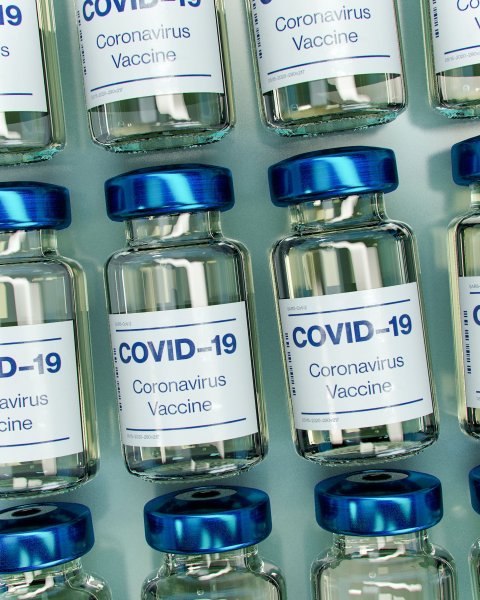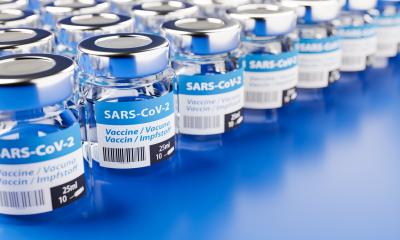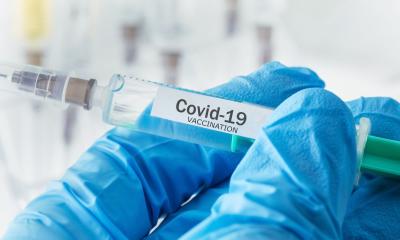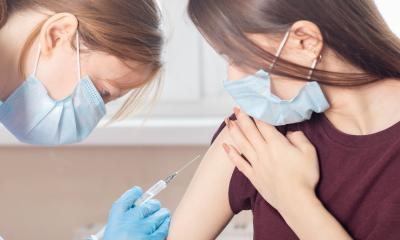News • Supply and demand
Covid-19 vaccine will probably be unavailable for many until 2022
Nearly a quarter of the world’s population may not have access to a covid-19 vaccine until at least 2022, warns a study published by The BMJ.
Nearly a quarter of the world’s population may not have access to a covid-19 vaccine until at least 2022, warns a study published by The BMJ. A second study estimates that 3.7 billion adults worldwide are willing to have a covid-19 vaccine, highlighting the importance of designing fair and equitable strategies to ensure that supply can meet demand, especially in low and middle income countries. Taken together, these findings suggest that the operational challenges of the global covid-19 vaccination programme will be at least as difficult as the scientific challenges associated with their development.
Governments and manufacturers might provide much needed assurances for equitable allocation of covid-19 vaccines through greater transparency and accountability over these arrangements
Anthony D So, Joshua Woo
But the authors point out that even if all of these vaccine manufacturers were to succeed in reaching their maximum production capacity, at least a fifth of the world’s population would not have access to vaccines until 2022. “This study provides an overview of how high income countries have secured future supplies of covid-19 vaccines, but that access for the rest of the world is uncertain,” they write. “Governments and manufacturers might provide much needed assurances for equitable allocation of covid-19 vaccines through greater transparency and accountability over these arrangements.”

Image source: Unsplash/Daniel Schludi
In the first study, researchers from the Johns Hopkins Bloomberg School of Public Health analysed pre-orders for covid-19 vaccines ahead of their regulatory approval that had been publicly announced by countries around the world. By 15 November 2020, several countries had reserved a total of 7.48 billion doses, or 3.76 billion courses from 13 manufacturers, out of 48 covid-19 vaccine candidates in clinical trials. Just over half (51%) of these doses will go to high income countries, which represent 14% of the world’s population, say the authors. Low and middle income countries will potentially have the remainder, despite these countries comprising more than 85% of the world’s population. If all of these vaccine candidates were successfully scaled, the total projected manufacturing capacity would be 5.96 billion courses by the end of 2021, with prices ranging from $6.00 (£4.50; €4.90) per course to as high as $74 per course.
Up to 40% of the vaccine courses from these vaccine manufacturers might potentially remain for low- and middle-income countries. However, this will depend, in part, on how high-income countries share what they procure and whether the US and Russia participate in globally coordinated efforts.
In the second study, researchers based in China and the US estimated target populations for whom vaccines would be required, to help guide development of fair and equitable allocation strategies across the globe. They find that target population sizes for covid-19 vaccination vary widely by geographical region, vaccine objectives (such as maintaining essential core services, reducing severe covid-19, and stopping virus transmission), and the impact of vaccine hesitancy in reducing demand.
They point to evidence suggesting that around 68% of the global population (3.7 billion adults) is willing to receive a covid-19 vaccine, and say their findings “provide an evidence base for global, regional, and national vaccine prioritisation and allocation.” “Variations in the size of the target populations within and between regions emphasise the tenuous balance between vaccine demand and supply, especially in low and middle income countries without sufficient capacity to meet domestic demand for covid-19 vaccine” they conclude.
Both studies are observational, and the authors acknowledge the implications of uncertainty and incomplete information for their analyses. Nevertheless, these findings illustrate the considerable scale and complexity of manufacturing, purchasing, distributing, and administering covid-19 vaccines in a way that meets global needs, and does so equitably among nations and populations.
Recommended article

Article • Covid-19 disinfection
New insights into SARS-CoV-2 surface stability and temperature susceptibility
Surface disinfection has proved an effective method to control Covid-19 infection, as virologists from the Ruhr University Bochum (RUB) have shown. However, an effective disinfection strategy against Coronavirus must consider various factors, says Professor Eike Steinmann, head of the Department of Molecular and Medical Virology at the RUB.
In a linked editorial, Jason Schwartz at Yale School of Public Health points out that many countries have already shown a commitment to equitable global access to covid-19 vaccines by purchasing through the COVAX Facility - an initiative that invests part of the payment in vaccines for poorer countries. But he says vigilance is required “to ensure that such aspirations are realised in the months and years ahead.”
He argues that the successful, equitable implementation of covid-19 vaccination programmes “requires unprecedented global coordination and a sustained commitment of resources - financial, logistical, and technical - from high income countries.” In particular, he says US participation in vaccination efforts “will be invaluable in ensuring that all populations globally have access to the covid-19 vaccines that will ultimately help bring an end to this devastating global health crisis.”
Source: BMJ
16.12.2020







